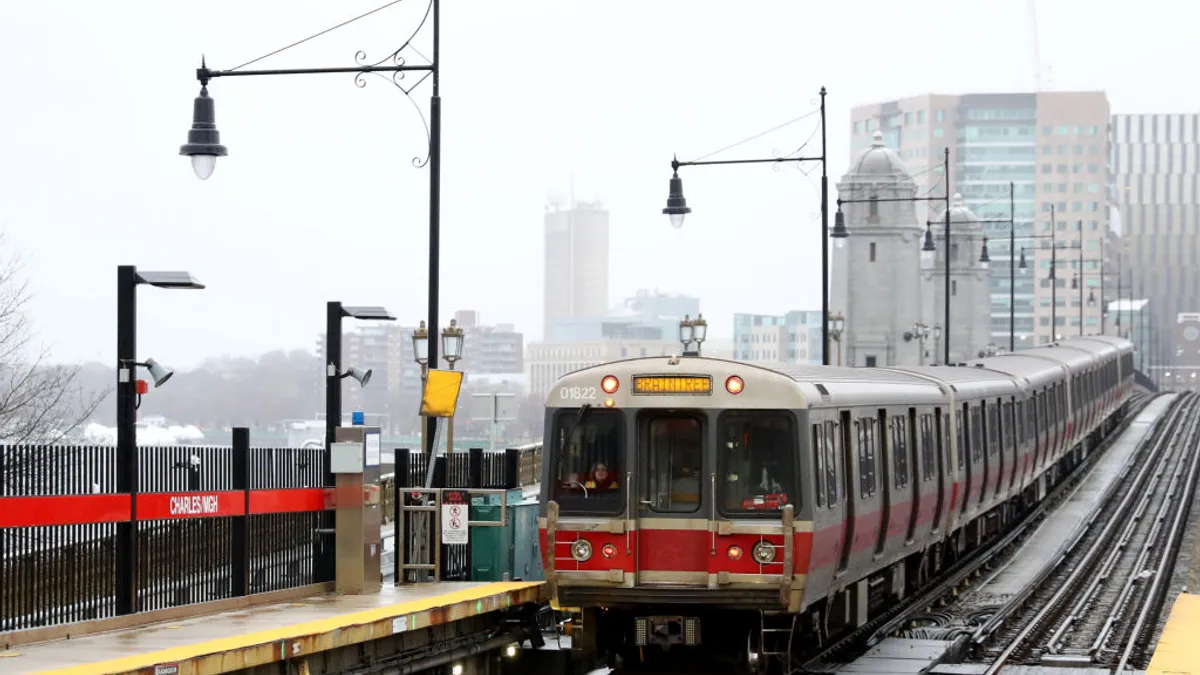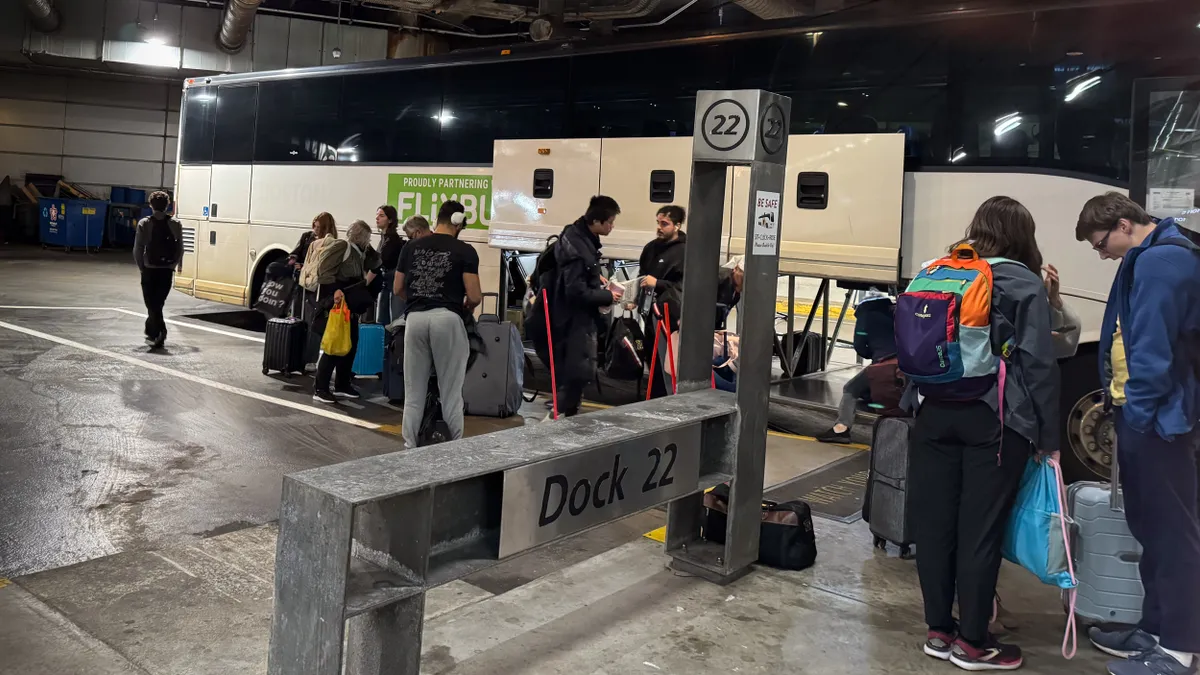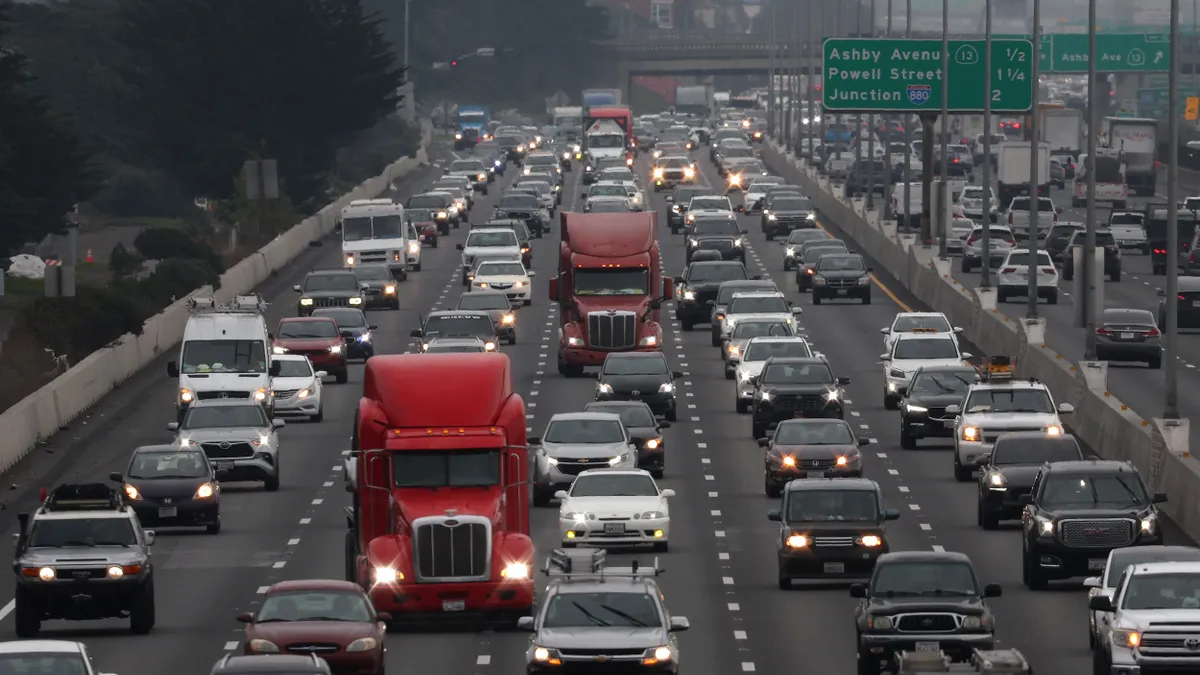The Federal Transit Administration released a final report Wednesday on its investigation into safety issues at the Massachusetts Bay Transportation Authority, casting blame on MBTA leadership and the Massachusetts Department of Public Utilities, which oversees safety at the transit agency.
“There have been decisions made by the [MBTA] and by the Department of Public Utilities that the FTA does not consider in the interest of safety,” said Paul Kincaid, associate administrator for communications and congressional affairs at the FTA, speaking to reporters Wednesday.
The FTA began a formal safety management inspection of the MBTA on April 14, following “an escalating pattern of safety incidents and concerns” that included one passenger fatality, the final report states. Safety failures continued during FTA’s inspection, including two collisions of trains on the Green Line, two rollaways of Red Line trains, three derailments of construction equipment and a Red Line train derailment at the Kendall/MIT station.
In June, the FTA issued four “special directives” requiring the transit agency to take immediate steps to correct a number of issues the federal agency identified. In its report, the FTA found that while MBTA leadership was aware of the issues, “they had not evaluated the information as is necessary to effectively assess systemwide safety and prioritize action.”
From 2017 to 2021, the MBTA was responsible for 38% of all light-rail collisions in the U.S. and 94% of injuries related to such collisions. Derailments of both MBTA light-rail and heavy-rail trains (typically subway or elevated lines) exceeded the national average of similar systems from 2015 to 2021.
Among the FTA’s findings was that management’s attention on capital projects had diverted attention from operations and maintenance. Over the last four years, the MBTA has more than doubled its capital spending while it is experiencing a shortage of workers with 13.4% of its positions currently unfilled.
On top of that, the report notes that “in January 2022, MBTA’s leadership team and Board of Directors took the unprecedented step of transferring an additional $500 million from the MBTA’s operating budget to its capital budget.” Speaking Wednesday, Kincaid said, “Funds were moved from operations and safety to capital in ways that weren't advisable.”
With MBTA’s insufficient staff, the FTA found that it doesn’t have the resources to manage its $2 billion capital program and “complete capital projects on time and without need for retrofits and workarounds.”
The FTA specifically blamed the transit agency’s top executives for an inadequate safety management system. “MBTA’s executive leadership has yet to provide explicit direction regarding the type of safety information it requires or the necessary organizational structures to support the movement of safety data (transformed into actionable safety information) from the field to the Board room. MBTA’s executive leadership has not established and communicated its priorities to guide the collection, analysis, and reporting of safety information,” the report states.
The agency categorizes safety issues into green, yellow and red conditions, but it doesn’t have the resources to address green or yellow conditions, the report noted. Thus, most work is focused on addressing the most critical red conditions, while “yellow and green conditions can rapidly deteriorate.”
The DPU failed to do its job as well, the report concludes, stating that “DPU has not been actively engaged in overseeing the MBTA’s Safety Management System (SMS), including safety risk management and safety assurance activities.” The report added that while the DPU has the authority to require remedial action, it “rarely invokes its authority to compel such action.”
The MBTA has already shut down one entire rail line to conduct a 30-day repair blitz. More pain may be ahead for Boston area transit riders, however. “It's going to take a fair amount of time and, unfortunately, a fair amount of patience on the part of the riders of the ‘T’ to get it to again what we call a state of good repair,” Kincaid told reporters.
The transit agency announced Thursday that it has created a new quality, compliance, and oversight office to address the FTA’s findings. It appointed Katie Choe, who had been chief of capital delivery at the agency since January 2020, to head the new office. According to the announcement, the office “will operate outside of the T’s current organizational structure.”
Also on Thursday, Gov. Charlie Baker filed an $840 million supplemental budget that includes $200 million for the MBTA to address the FTA’s safety directives and $10 million to establish a training academy to help tackle the agency’s staffing challenges.
But the FTA made clear that the MBTA first needs to solve its safety issues. “Our priority is keeping the people who ride these trains safe and keeping the people who work on these trains safe,” Kincaid said. “We will not negotiate on whether safety is our priority, and we will not negotiate on whether safety should be the priority of the ‘T’ and DPU. It's just not an option.”




















